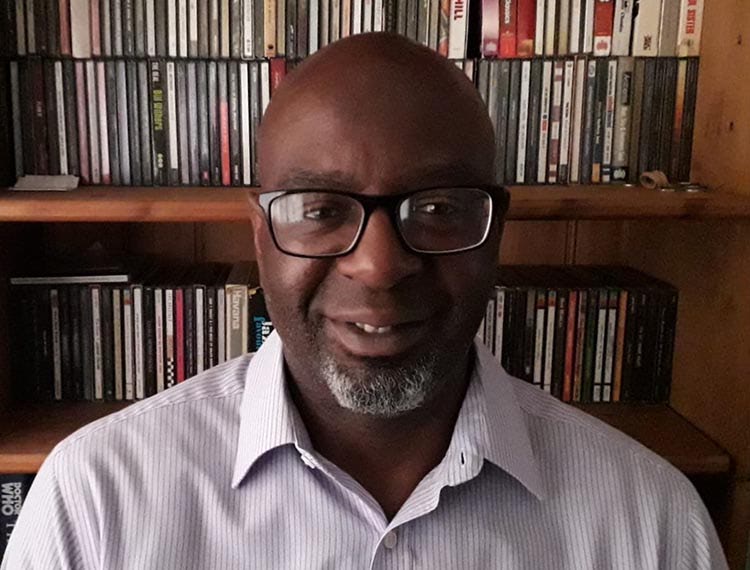Fallout from GCSE results: How are we engaging black and minority students?

In a follow up to my article on ‘Is there a future for teaching black british history?’ a number of comments and questions have been raised.
One of which is how we engage students from a minority background.
As we prepare to deliver lessons in 2020 to students who have, let’s be honest, endured the most difficult and confusing times in recent years.
We have to consider our roles as educators in the so-called ‘new era’ post pandemic. I touched on the issues with the BLM movement and protests.
The questions students have in understanding the fallout from the death of George Floyd. The protests and anger around the country and questioning of how the government will handle the issue.
The spotlight shining on ‘stop and search’ treatment with not only members of the public but with our olympic athletes (Bianca Williams and partner Ricardo do Santos) and members of parliament (Labour MP Dawn Butler) being racially profiled “I don’t know what raised their suspicion. All I know is I’m black, my friend was black and he has a fairly decent car.”
So how are young people in education supposed to trust us if the framework of our system seems to not trust them?
Historically, we are educated to trust those in authority. That they will do the honest, fair and right thing for the wellbeing of individuals and groups. We have policies and legislation but repeatedly, we see evidence in courts, policing and education of institutions with prejudicial outcomes for minorities.
How are young black and minority students going to trust educators in colleges when outside the walls of our learning, they are profiled, stopped and searched, treated unfairly and viewed as antagonistic and confrontational?
The mistrust in the classroom of authority figures may come from the lack of representative management and teachers in the classroom itself. Given the percentage of black and minority teachers are wholly underrepresented in FE, how are students to view the statistics as they walk the corridors of their college?
With 21.3 % of students from a minority background. Are we aware of the representative number of black and minority teaching staff or do we fall under the scope of tokenism in FE leadership in colleges?
Can we honestly say that we have diversity in the classroom when it comes to teaching staff?
In meeting the needs of students in the classroom, we also need to adjust our approach to the curriculum by decolonisation of the vocabulary and subject matter. Many of you will understand the need to bring language into the 21st century and remove racial and prejudicial language from delivery and more so in the text we use.
Language is a powerful tool and can be misguided and damaging to young people when it becomes ‘weaponised’ as the term is today. But it also has historical context in terms of use of racist, sexist, discriminatory and prejudicial terms.
In the early 1980’s, at my middle school, I heard many teachers refer to students in derogatory terms (some of which still prevail today). But with many safeguards and better understanding most professionals would not use language to a student , yet some vocabulary still continues in the text we use to educate your young people. ‘Black hole’, ‘black market’, ‘Dark web’, ‘sold down the river’, ‘blacklist’, ‘cakewalk’, ‘Alien’, ‘Defect’, ‘Handicap’, ‘Third world’, ‘blackmail’.
With 2020 A level and GCSE examinations now being predicted by teachers and the confusion of amendments from Ofqual, how are we to address the fallout from students and regain the fragile trust we have built up over an unprecedented incident as the Covid-19 lockdown?
Given the assumption that many students who receive lower grades come from schools with previously poor results and many of whom are from minority backgrounds. Until this week, the idea of engaging students whether to appeal or to retake exams in November hinges on understanding the need for a fair and robust system which does not penalise Black and Minority students.
Ofqual chair Roger Taylor and Education Secretary Gavin Williamson apologised for the “distress” caused.
With the u-turn from the government on their stance about poorer grades,when the premise of that grade is largely based on them living in poorer areas and attending schools and colleges which historically have not achieved high results from minority students?
Why did Ofqual use an algorithm which penalises poorer students?
If we have a further spike or lockdown what assessment will Ofqual use to calculate results and will students trust such a method given the debacle of recent leadership? Geoff Barton, general secretary of the Association of School and College Leaders (ASCL), welcomed the decision “to put an end to the grading fiasco”. He added the move would mean there was grade inflation, but he said this was a “small price to pay for remedying the manifest injustices” caused by the algorithm.
To engage these young students we need to build trust by developing options, a vision they can see and follow walking a path on their journey through education. We should be championing courses with full accreditation for culturally appropriate development and insight. Build staffing in teaching and management which mirrors the percentage of ethnicity within each institution rather than the tokenism seen over the past decade.
I acknowledge some FE Colleges have begun to address the lack of representation in this area but others still view the appointment of Black and minority managers, directors and board members as political correctness or projects to assuage pressure groups.
I have been a member on an ELT(executive leadership team) board addressing the policy on equality & diversity. Ironically, I was the single staff member from a minority group in a team of twenty.
To engage our students through this time of uncertainty, I believe we need to address a number of issues urgently and revisit the structure of how we deliver teaching. How we decolonise the curriculum to address currently and historical inaccuracies.
Employ managers and directors from minorities to match the percentage of those in the classroom. And make the teaching and examinations meet the hard work and studies of students, regardless of the area they reside in, but focus on their ability to achieve and develop knowledge in their studies.
Peter Ejedewe B.A.Teacher & writer (Culture, Community & Management Studies)











Responses